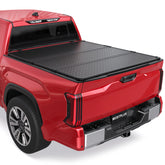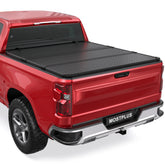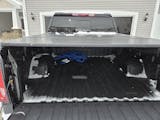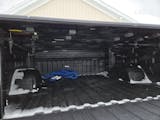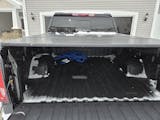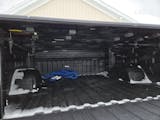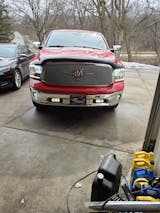How to remove rust from brake rotors?
Brake rotors often rust, especially those made of cast iron. Rusty rotors can lead to reduced braking performance and potentially dangerous situations on the road. If you notice signs of rust on your brake rotors, it's important to fix the problem as soon as possible. In this article, we'll explain how to get rid of this oxidation so you don't have to replace your brake rotors.
Rusty rotors: why?
Stopping the car
When the car is stopped, brake rotors show a reddish deposit on the surface because cast iron and steel, the materials most commonly used to make brake rotors, are oxidizable. They rust when exposed to dust and moisture.
In reality, this is because the rotor is not rotating. Rust begins to form as soon as the rotors are installed on a vehicle. Thin layers then appear on the edge. Repeated braking under light driving conditions will remove the rust. However, after the car has been stationary for a week, the rust becomes more visible: the thin films give way to thick layers.
At this stage, repeated braking will not remove the rust that has formed, especially since it has spread over the entire surface. If sanding or using chemical compounds to remove the rust is not an option, the rotors must be replaced.

Exposure to the elements
The most effective way to accelerate the oxidation of cast iron and steel is to expose it to adverse weather conditions. We're not just talking about ambient humidity or dust. We're talking about real downpours, hail, and snow. In general, driving in the winter is a risk because residual slush combined with road salt makes brake rotors even wetter than usual. As a result, they rust more quickly.
Brake pad wear
Brake pads are designed to provide friction on the brake rotors to reduce vehicle speed and bring the vehicle to a stop.
Worn brake pads are unable to effectively clean the dust and water that has accumulated on the brake rotors, which promotes the development of rust. How often the vehicle is used, the driving style, and the environment determine the condition of the brake pads and therefore their ability to prevent the front and rear brake rotors of a vehicle from rusting due to ambient moisture.
Ultimately, there are many factors that contribute to the rusting of a vehicle's brake rotors. Fortunately, it is possible to control the phenomenon and prevent rust from spreading rapidly over the entire disc surface by driving regularly. This will also ensure that the car's braking system functions properly.
How do I remove rust from my rotors?
There are two ways of removing rust:
- The simplest and most effective method is to drive the vehicle for a few miles, braking frequently. As you do this, the rust will come off as the rotor rubs against the pads. This is really all you should do; although rust can easily build up, it will come off as the rotor rubs against the pads. Although effective, this method can lead to long-term brake wear.
- Clean the brakes with an aerosol cleaner, using a drip pan to catch any liquid residue, and wipe the rotor with a cloth. Brake cleaner works best because it evaporates quickly.

You can also use a sponge and elbow grease to give your rotors a new shine.
Rub the rotors with something abrasive if rust remains. Apply brake cleaner again and rub the rusted area thoroughly with steel wool or a wire brush.
For excessive rust, use a liquid cleaner. The cleaner usually comes in concentrated form and should be mixed with a gallon of water. This is the most difficult option because you'll need to disconnect the car's rotor and submerge it in a container of the solution.
Unfortunately, it's not possible to prevent rust from forming on brake rotors, but with regular maintenance, you can keep this small problem at bay.
Conclusion
Rust slightly interferes with the proper functioning of the braking system, making it a little less efficient, because it interferes between the pad and the disk. It is the friction between these two parts that slows down the vehicle.
Remember that rust on brake rotors is not a worrying sign of wear unless the oxidation is widespread. It's nothing more than normal metal degradation.
Featured Products
- $479.99
$499.99- $479.99
- Unit price
- / per
- $549.99
$559.99- $549.99
- Unit price
- / per
- $489.99
- $489.99
- Unit price
- / per
- $469.99
$489.67- $469.99
- Unit price
- / per
